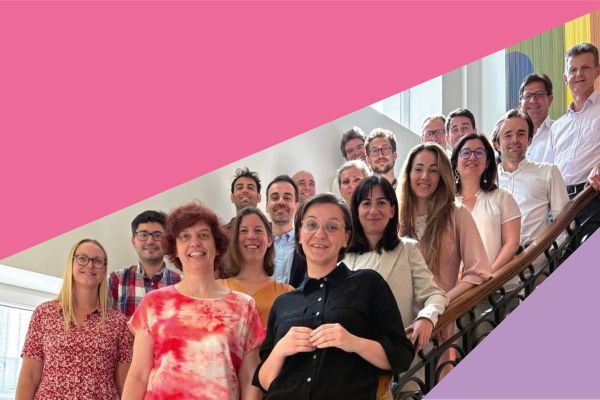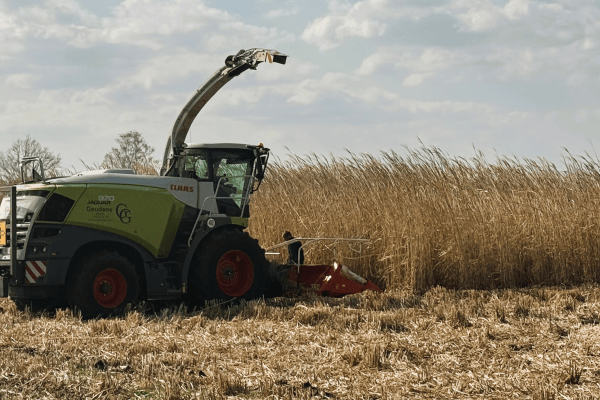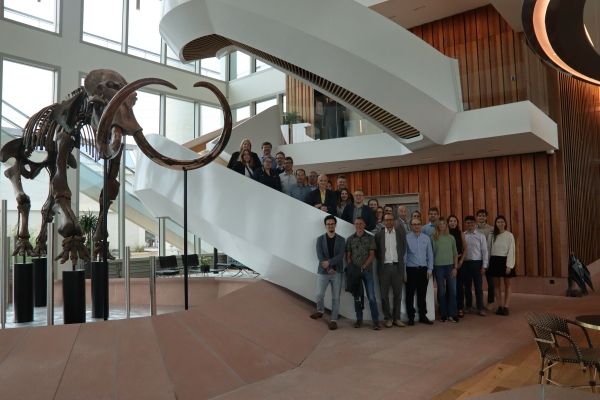European Critical Raw Materials Act puts VITO's raw materials research and expertise at the heart of European policies
Europe has taken a decision. After the corona pandemic caused a life-threatening shortage of mouth masks as we are dependent on China for their production, as a result of the war in Ukraine and the many tensions in unstable countries that supply us with strategic and critical raw materials, Europe wants to focus on self-sufficiency. It has therefore drawn up an act with three spearheads. VITO did not wait for this Critical Raw Materials Act (CRM Act). We have been taking the lead for years. This act gives us the opportunity to strengthen our technologies and spread them more widely.

The CRM Act distinguishes between strategic and critical raw materials. A critical raw material is strategically and economically important. If we do not have this material, our economy risks stagnation or even a standstill. A material can also be labelled critical if it is a commodity produced only in one country or in countries with unstable regimes. A strategic raw material helps make Europe more independent in the production of strategic products, especially in green energy, digital technology and defense.
These raw materials - and especially strategic raw materials - are very important if we want to meet climate targets. Europe wants a guarantee that it has at its disposal all the raw materials it needs to meet those targets. Especially as it is aware that there is currently no oversupply of strategic raw materials on the market, rather a shortage.
Three ambitious targets for 2030
Europe is ambitious. The CRM Act puts forward, among other things, three focal points to strengthen the capacity of strategic raw materials value chains by 2030:
- 10% of strategic raw materials should be sourced in Europe itself. As circularity and recycling alone cannot meet the growing demand for these raw materials, mining remains necessary. However, the focus is on limiting the environmental impact, for instance by focusing on 'near-zero waste processing' and even 'unmanned mines'.
In recent years, VITO has built up a lot of expertise in recovering valuable materials from mining waste and can thus make a targeted contribution to more sustainable mining, ranging from cleaning up waste flows to recovering residual fractions of valuable metals and doing useful things with what remains. The mining sector itself strongly advocates this, as it means there is no more waste to stockpile or dispose of, waste becomes a valuable asset and the recovered metals can be used for high-value applications.
- The processing of raw materials such as ores into semi-finished products and products in Europe should account for 40% of annual demand. Here too, VITO can contribute with technology and circular business models for the sustainable production, use and management of high-tech materials. We support companies to deal with raw materials in a more efficient and circular way. This can be done by introducing circular business models that move away from the idea that products are simply sold without further follow-up or aftercare by the producer.
- At least 15% of the annual consumption of strategic raw materials in Europe must be met through recycling. Many waste streams still contain valuable materials. These should no longer be lost by dumping or exporting them. Everything starts with determining the exact content of the often heterogeneous waste streams. After that, it is crucial to recover the materials from the waste stream in the most sustainable way possible. For each of these steps, VITO has the necessary technology ready to support companies in this objective.
In addition, VITO advises companies and governments in setting up recycling chains. To achieve efficient recycling, the entire collection-sorting-processing chain must be optimised to get the right material with the right quality to the right place.
Time for more and rapid action
This act mainly impacts the start-up of new industrial activity. The deadlines - 2030 - leave little time for new research and innovation. So the focus will be on implementing and scaling up technologies that we and other research organisations have developed.
Within the European Association of Research and Technology Organisations (EARTO), a new CRM working group has already been set up to look at challenges contained in CRM Act and how we can best respond to them with cooperation, research and development from the European research organisations.
It is also important to note that the targets are formulated as percentages. This means that they can also be achieved by reducing or controlling overall materials consumption. In that sense, circular solutions certainly also help achieve the CRM Act targets.
What can VITO offer companies?
Companies directly or indirectly affected by the CRM Act will, more than ever, be able to turn to VITO. There are a lot of VITO technologies that are already very close to the market and can therefore be adopted fairly quickly in the industry, which means we can help companies respond to this new reality in a targeted way.
In addition, we can help companies that are not yet ready to switch to a new technology to develop and test new technologies via co-financed projects, for example. We are already doing that today and can expand even further.
The CRM Act also makes it clear to companies that they have much to gain if they commit to circular strategies and better materials management. It is important to keep materials in their own management as much as possible by working with leasing systems, for example. The sense of urgency is lacking today because companies often do not see the economic benefit of doing so. The CRM Act can change this. It shows that Europe is aware of the risks involved in simply outsourcing materials and raw materials and the dependence on unreliable suppliers and supply channels. The same applies to companies: they cannot be sure that they will simply get the necessary raw materials and materials within five years. They can turn to VITO for this. We provide substantiated advice on how to build in more circularity and develop a circular business model tailored to their value chain and situation.
Materials research even more on the political agenda
The CRM Act puts VITO's materials research even more on the political agenda. Within the Green Deal - where the focus is on climate and renewable energy - and the Circular Economy programme - where focus until now has mostly been on plastics and textiles - the raw materials aspect has never really been in the foreground. That is now changing. Our materials research is getting into the heart of European policy. The short-term goals set out in the CRM Act force companies to get involved now.
The CRM Act is a European initiative but Belgium and Flanders are also compiling their own list of critical raw materials, specific to our economy, our region and our own climate goals. As an organisation, we play a role there too: we can help define that list and work out solutions to the challenges.
VITO agrees with this act. More so: our research actually (in)directly contributed to what is in that act. For ten years we have been working on the pain points that are now cited in the act and have shown the possibilities in terms of technology and policy. The research and networking carried out by VITO have been instrumental in the drafting of this CRM Act. So we are ready to address the objectives of this CRM Act.
Current projects
Some current projects that directly address the objectives of the CRM Act
Critical materials for (lithium) batteries
- Mining: VITO participates in several European projects studying alternative ores present in Europe to extract lithium (LICORNE) cobalt and nickel (ENICON). In this last project, VITO is mainly looking at how to further increase the circularity of materials that are mined, by converting the mineral fraction of the mined material (95% of the material normally considered "waste") into usable products (i.e. construction materials) and/or inert materials.
- Recycling batteries with critical ores: RHINOCEROS works on recovering the critical/strategic materials from batteries (graphite, cobalt, nickel, lithium) and the ACROBAT project goes one step further as it will purify and reuse the active materials from batteries (containing e.g. lithium) directly in new batteries, increasing the circularity and sustainability of recycling.
- Reuse: Instead of going straight for recycling, you can also extend the life of batteries, which avoids the need for recycling processes and improves circularity. The CIRCUSOL project is an example of this.
Recovery of critical materials from material streams present in Europe which are not yet considered as feedstock, often due to economic reasons and the fact that the metals are present in complex form and low concentration:
- CHROMIC: recovery of chromium, molybdenum and vanadium from steel slag, a waste product of the steel industry.
- METGROW+: recovery of critical metals from low-grade primary and secondary ores.
- PEACOC: recovering valuable metals (platinum, palladium, rhodium, silver and gold) from waste products.
- SULTAN and NEMO: recovering valuable metals from mining waste.
- CRM-Geothermal: Recovery of Li and other CRM from geothermal brines.
- Firefly: Recovery of critical metals from spent, waste and off-specs catalysts of the chemical industry to directly produce recycled (electro)catalysts for more sustainable processes, aiding electrification and defossilization of the chemical industry.











